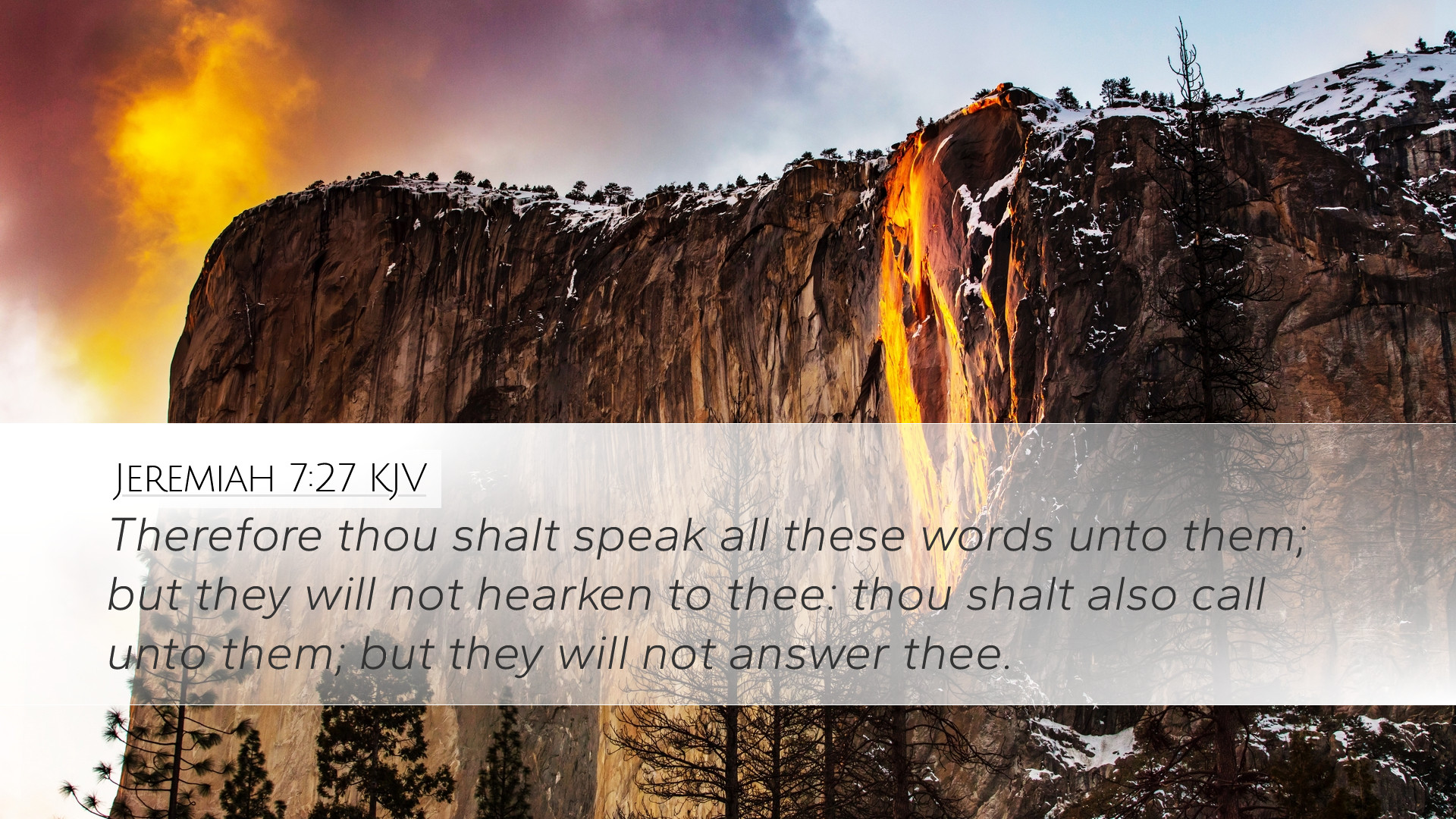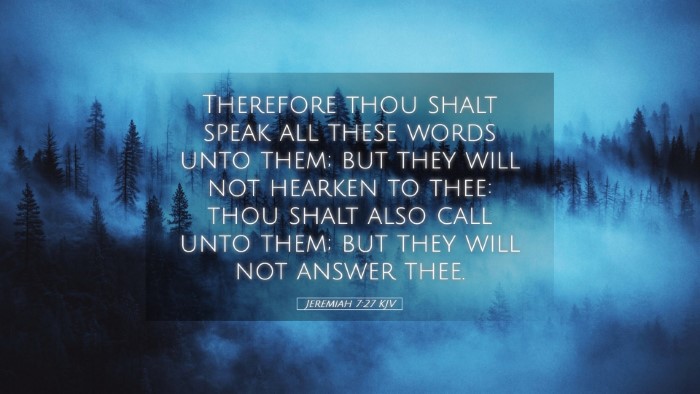Commentary on Jeremiah 7:27
Verse: "But if you will not hearken unto me, to walk in my law, which I have set before you, then I will make this house like Shiloh, and will make this city a curse to all the nations of the earth." - Jeremiah 7:27 (KJV)
Introduction
The verse Jeremiah 7:27 serves as a poignant message from God through the prophet Jeremiah, highlighting both the seriousness of disobedience and the impending consequences. This commentary synthesizes insights from several public domain commentaries, including those of Matthew Henry, Albert Barnes, and Adam Clarke, to provide a deeper understanding of the text.
Contextual Background
Understanding the broader context of Jeremiah 7 is essential. The chapter is often referred to as the "Temple Sermon" where Jeremiah delivers God’s message to the people of Judah, who falsely believe their security lies in the physical structure of the temple. This false sense of security leads to idol worship and moral decay. The warning in verse 27 is a climax of God’s plea for repentance and obedience.
Divine Pleas and Human Rejection
The phrase "But if you will not hearken unto me" highlights the conditional nature of God’s covenant with His people. Matthew Henry comments on the seriousness of ignoring divine warnings, noting that it signifies a blatant disregard for God's law. This refusal to listen and obey sets the stage for judgment.
Albert Barnes emphasizes the concept of hearing and heeding God’s voice, indicating that true obedience is rooted in responsiveness to God’s call. He reflects on the implications of rejecting God’s law, demonstrating that it leads not only to personal downfall but also to national calamity.
Consequences of Disobedience
The verse draws a vivid comparison: "I will make this house like Shiloh." Adam Clarke elucidates that Shiloh was once a center for the tabernacle and the home of God’s presence among His people. However, due to sin, it was destroyed, and the presence of the Lord departed. This historical allusion is a stark reminder that God does not tolerate persistent disobedience.
Henry notes that making the city a curse serves as a powerful warning. The fracture of God’s relationship with His people results not merely in physical devastation but spiritual abandonment. The temple and the city symbolize God’s promise, yet due to continuous rebellion, these symbols are at risk of becoming desolate.
Applications for Contemporary Believers
The message of Jeremiah 7:27 transcends time and speaks into the lives of modern believers. It serves as an urgent reminder of the necessity of genuine repentance and obedience. Pastors and theologians can draw parallels to current societal trends where the church may find itself complacent in its relationship with God.
-
Call to Repentance: The call to repentance remains paramount. Just as the people of Judah were urged to return to God's ways, contemporary believers must assess their lives for patterns of disobedience and idolatry.
-
Understanding Spiritual Security: Like the Israelites, many believers may place undue confidence in religious rituals or structures. Clarke emphasizes that true security comes from a heart aligned with God's commandments, not merely through physical observances.
-
Embracing God’s Voice: The significance of hearkening to God’s voice is critical. Pastors, students, and theologians should prioritize cultivating a lifestyle that is attuned to God’s leading. Barnes highlights that listening to God’s calls prepares us to act in ways that honor Him.
Conclusion
Jeremiah 7:27 encapsulates a profound truth about the relationship between divine expectation and human response. The warnings presented convey the gravity of disobedience and the dire consequences that follow. Commentary from historical leaders in biblical interpretation reinforces the timeless relevance of this message.
As pastors, students, and scholars engage with this text, let them be reminded of the importance of obedience and the eternal truths that govern God's relationship with His people. Just as the Israelites were called to genuine faithfulness, so too are we called to ensure that our lives reflect a commitment to walking in God's ways.


